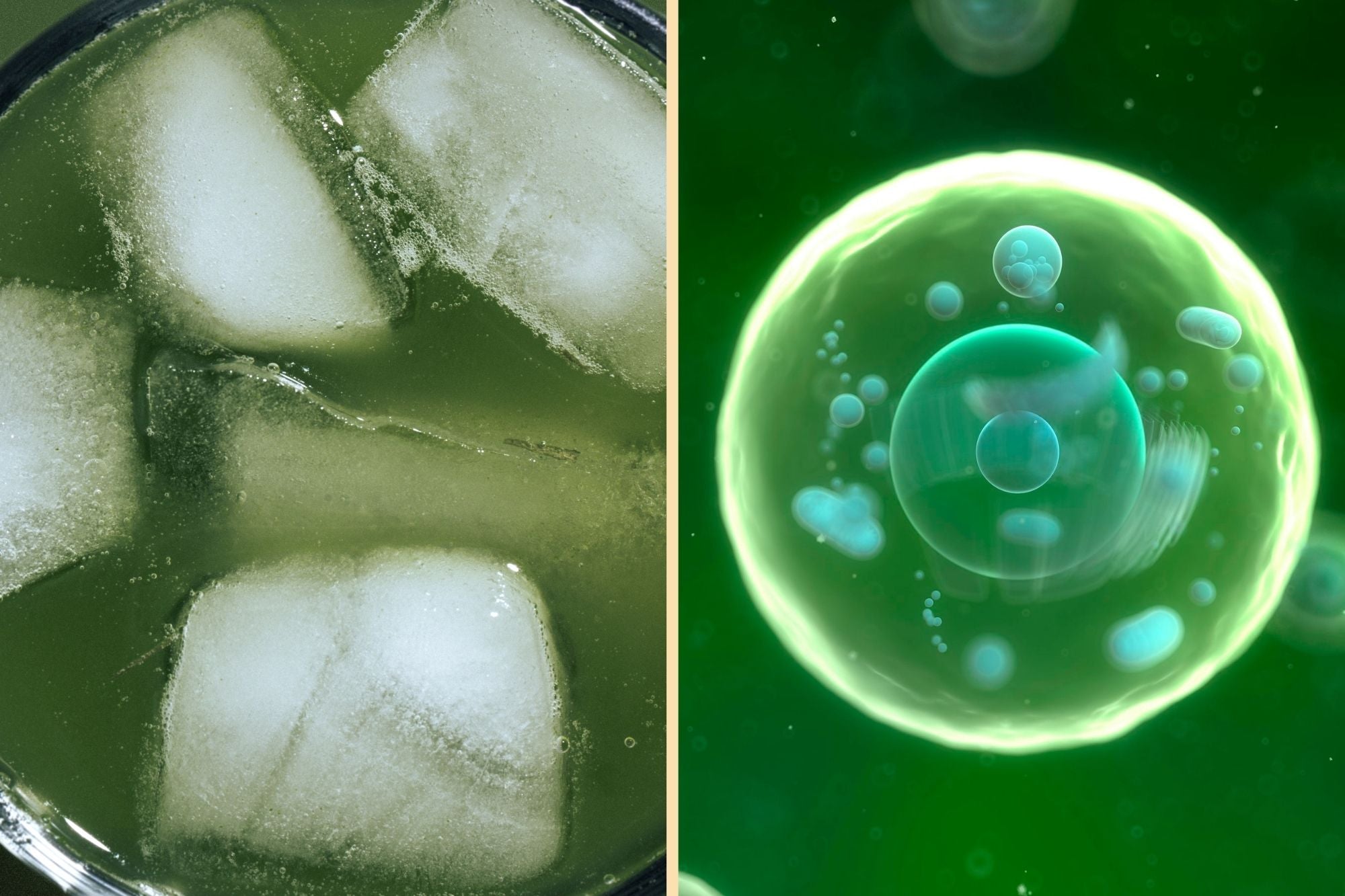
First, let's ask ourselves: are we over-obsessed with organic labels as a nation/collective whole? Do we see the word 'organic' and immediately approve the purchase in our heads without thinking another moment of the quality.
I had to laugh the other day when I was at Costco, and all over all the seed oil filled, refined sugar and flour loaded, "keto" snacks at the end of the road towards the checkout was the word "organic" plastered all. over. everything. It was almost in that very instant that I knew I wanted to expound a bit on this and that this was the perfect opportunity to discuss the almost end-all question we get from avid matcha enthusiasts who have heard of LAKA matcha but have to know: Is your matcha organic?
Before I dive deep into lots of juicy tidbits, I'll start by saying the matcha that everyone knows and loves from LAKA is not certified US organic. When I was seeking out the perfect matcha, we intentionally chose one that came without a US organic label. Two reasons: all the organic ceremonial varieties tasted like crap. They were a dusty grey-green color and the bitter levels were through the roof! They were, surprisingly, much cheaper per gram than the varietal we opted for which was hard to swallow, but the fact of the matter is that the organic varieties overall tastes much less like traditional ceremonial matcha should. Second, they were all inconsistent and had completely different flavor profiles for reasons I will expound on below.
We've been blessed to develop an extremely healthy relationship with our tea farmers in Japan and have been able to learn so much about the "scam" of the organic tea industry and where the majority of quality has taken a turn for the worst.
Even though our tea is technically organic by both US and JAP standards and our farm could operate as an organic farm, our farm has decided to opt out of the organic certification process for a few reasons:
1. Our tea farm is already operating in a highly sustainable way and quality-focused manner and they see the ever-changing organic regulations as more work than it's worth and would put them at risk for delivering inconsistent tea in terms of flavor, price, texture, and overall quality. (This is why all the organic teas I tasted were just not it.)
2. The changing regulations and paperwork year by year of organic farming is extremely time consuming. Our farm still harvest very slow as they use hand-held* machines to ensure quality so their time to produce and process (and thus time leftover as a team) is already of the essence.
3. The constant changing of organic regulations produces inconsistent tea and thus companies rely on the organic label rather than the quality of the tea because they have to abide by the changing regulations and pay the fees to earn the (sometimes false sense of security) the organic label brings.
Our farm is small and operated by farmers of all ages, even elderly, who grow their tea traditionally and do a whole lot by hand in the methods that were passed down to produce delicious tea you want to drink all day long. Japan boasts some of the cleanest, most optimum tea growing conditions in the world and unlike China, don't have to worry much about soil/air/water quality when growing matcha.
We looked for third-party test results, flavor, color, texture, and mouthfeel rather than an organic label and a ceremonial-grade slapped on it when choosing our matcha.
Third-party testing and traceability is the most important thing to look for in most sourcing, but especially tea. Understanding and knowing your farmers is of utmost importance and the testing results is just further reassurance of their attention to detail when growing the superfoods, herbs, and plants we all know and love.
We don't give you anything we wouldn't consume regularly ourselves, be sure that the LAKA stamp of approval is a radically real one. We search for the best of the best out there so you don't have to.
Get in touch with us to view our most recent testing results and we'd love to hear your questions or feedback on the shallow dive into Big Organic.
The takeaway: Just because it's organic, doesn't means it's quality.


